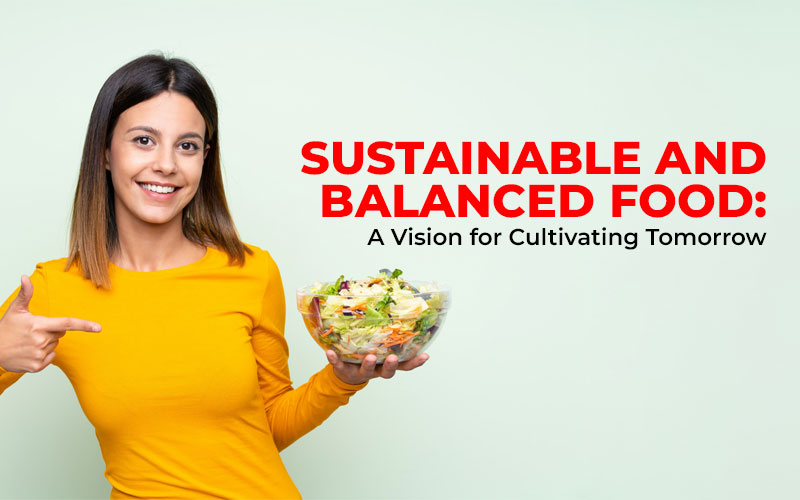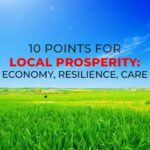Introduction:
In a world where food is both a necessity and a pleasure, the way we produce, distribute, and consume it has never been more important. As we stand at the threshold of tomorrow, our vision for sustainable and Balanced food must be clear and unwavering. It’s not just about feeding the world; it’s about nourishing it in a way that respects the planet and its people. Join me as we explore the path towards a brighter future, one where our food system is both sustainable and Balanced.
Sowing the Seeds of Sustainability
At the heart of our vision for tomorrow’s food system lies sustainability. It’s about more than just reducing our carbon footprint or minimizing waste (though those are important too). True sustainability means cultivating a system that can endure for generations to come, without depleting our natural resources or compromising the health of our planet.
One of the key principles of sustainable food production is regenerative agriculture. This approach focuses on building healthy soil, which in turn improves crop yields, sequesters carbon, and enhances biodiversity. By harnessing the power of nature, regenerative agriculture offers a way forward that is both productive and environmentally friendly.
But sustainability isn’t just about what happens on the farm; it’s also about how our food travels from field to fork. Local food systems play a crucial role in reducing food miles, supporting small-scale farmers, and fostering community resilience. By reconnecting with the sources of our food, we can create a more transparent and resilient food system that benefits us all.
Cultivating Balanced Food and Equity
In addition to being sustainable, our food system must also be Balanced and equitable. This means ensuring that everyone has access to nutritious and culturally appropriate food, regardless of their income or background. It means addressing the root causes of hunger and food insecurity, rather than simply treating the symptoms.
One of the biggest challenges we face in creating a Balanced food system is addressing the inequities that exist within our current system. From the exploitation of farmworkers to the consolidation of power among big agribusinesses, there are numerous obstacles standing in the way of food justice. But by working together to dismantle these barriers, we can create a food system that works for everyone.
Empowering small-scale farmers and food producers is essential to creating a more equitable food system. By providing access to resources, training, and markets, we can help these farmers thrive while preserving local food traditions and cultures. Supporting initiatives like community-supported agriculture (CSA) and farmers’ markets can also help bridge the gap between producers and consumers, fostering a deeper connection to our food and the people who grow it.
Embracing Innovation and Collaboration
As we look to the future, it’s clear that we will need to embrace innovation and collaboration in order to achieve our vision for sustainable and Balanced food. From harnessing the power of technology to developing new ways of thinking about food production and distribution, there are countless opportunities to create positive change.
One promising area of innovation is the field of alternative proteins. Whether it’s plant-based meat substitutes, cultured meat grown in a lab, or insect-based protein sources, these alternatives have the potential to revolutionize the way we think about protein production. By reducing the environmental impact of meat production and offering more sustainable options for consumers, alternative proteins could play a key role in building a more sustainable food system.
Collaboration will also be essential in achieving our vision for tomorrow’s food system. Whether it’s governments, businesses, NGOs, or individuals, we all have a role to play in creating positive change. By working together towards common goals, we can amplify our impact and create a more just and sustainable food system for all.
Conclusion: Nourishing Tomorrow
As we stand on the brink of tomorrow, the choices we make today will shape the future of our food system for generations to come. By cultivating a vision for sustainable and Balanced food, we can create a world where everyone has access to nutritious, culturally appropriate food, and where our planet thrives in harmony with nature. It won’t be easy, and there will undoubtedly be challenges along the way. But by sowing the seeds of sustainability, balanced, and innovation, we can nourish tomorrow and create a brighter future for all.
Know more about: Prince Khanuja And Khanuja Group




